- Home
- Rosanne Hawke
Zenna Dare Page 6
Zenna Dare Read online
Page 6
‘It’s Hamilton’s rabbit,’ I say and Caleb looks as though he wants to see, so I take him down the hall to Hamilton’s room. ‘He calls it Sher Khan,’ I add and grin at Caleb’s raised eyebrows. ‘Quite a name for a miniature rabbit, eh?’
Hamilton is sitting by the cage, his back to the doorway.
‘Sher Khan not too good, mate?’
Hamilton just shakes his head and stares into the cage. The rabbit doesn’t look flash either. It’s breathing funny and looks distinctly glassy-eyed. Poor Hamilton. I’m wondering if we can buy another one in Kapunda, when Caleb gets all business-like.
‘Go and see if your mum’s got some pineapple in the fridge, mate.’ Hamilton doesn’t need to be asked twice; he runs to the kitchen. The look on his face concerns me though, like Caleb’s come to save the day. What if he can’t? And pineapple? I’m still wondering about that when Hamilton brings some in.
‘Just give him a bit, mate.’
‘What will pineapple do?’
‘Help get rid of the hair ball.’
‘Hairball?’
‘Rabbits get them like cats do but they can’t vomit them up like cats.’
Incredible. How does he know so much? He sees the look on my face and grins. ‘I have done Ag Science since Year 8. I should have picked up something by now.’ Then he turns back to Hamilton. ‘He should have fresh hay every day, mate. I’ll bring some when I go out to the farm tomorrow.’
Hamilton’s hesitant, hopeful. ‘You think he’ll be okay?’
‘Sure he will. But he wouldn’t be if you hadn’t noticed. The hay will help pass the fur through his digestive system. You could brush him some too. Don’t worry now.’ And what Hamilton does then, I haven’t seen him do before, not to anyone other than Dad. He runs at Caleb full pelt, almost knocks him off balance and buries his face in his middle. What Caleb does next will determine whether he has a friend for life or not. I needn’t worry. Caleb doesn’t hesitate. He picks Hamilton up and walks him to the window. Then he whispers something in Hamilton’s ear and I see the kid nodding. Caleb seems totally at ease as though he’s lived around kids forever but I know he’s the youngest in his family. Then I notice Kate. The look on her face shocks me. Kate always has been one for strong emotion — whatever it is — but what could cause the screwed-up redness that looks like jealousy? Pique that Hamilton’s getting attention? Or is it Caleb? He turns then. Kate and I both smile but Kate’s eyes still look glassy and hard. The moment passes; Caleb grins at Kate, tells a joke on the way to the kitchen. Then we’re out of there.
‘So cool for you to take me,’ I say to Caleb on the way.
‘Hey, no problem.’ It feels good that he understands. He’s been through all this family stuff with his mum and miraculously isn’t bored by it. Somehow, his mother has instilled a sense of ‘before’ in Caleb and imparted the importance of it. Can’t think of any of my friends from Cedar Rise who’d be remotely interested, although Sokha may have. Certainly not Amy. We never talked about stuff like this. I remember Kate then and try not to feel guilty; maybe she wanted to come. Yet I wasn’t interested in family at ten. Why should she be?
Great-aunt Dorie isn’t quite as I remember her from Grandad’s funeral. He was my last real grandparent. Now I have only Steffi’s set, not really mine.
‘Hello, dear.’ Aunt Dorie knows me, even though she looks a little tattered round the edges. Her hair’s just been curled and coloured with grandma blue. From the doorway I can smell the hairspray attacking the atmosphere.
‘You look so much like your mother now, dear.’ I smile politely, knowing I don’t at all until I realise she means my real mum — the one I don’t remember. She was a Kapunda girl too, Nicky Batten. She knew Dad in the same cattle king high school. I wonder if they ever sat on the grass near the 1920s statue or walked down the street feeling like I do when Caleb comes with me. I fight to keep my mind on the job at hand; Caleb’s stayed in the cafeteria, at least. Another one of those things I ‘should do by myself’. I take out the photo of Gweniver, and hand it to Aunt Dorie.
‘I found this in the house, Aunt Dorie.’ Some instinct stops me telling her about the box. ‘Do you recognise her?’
She holds the photo up to the light of the window behind her. ‘This looks like Gweniver Tremayne. Bit young, though.’ She turns it over. ‘Gweniver Rundle, 1845. So that was her maiden name.’ Aunt Dorie gives me a look that’s hard to read. ‘This is very old, Jenefer. Photography wasn’t popular until later. Only rich people could afford it. Funny, I never thought they were —’ Her voice fades and I sit down close to her to prompt her. ‘What were they?’
‘Miners, we always thought. Came out to Kapunda when the copper was found.’ She pushes herself up out of the chair and shuffles over to a dresser. A few drawers get opened and shut until she pulls out a tin box and finds what she’s looking for. She brings it back — a photo. It’s a much older Gweniver, with hair piled up on both sides of her head and a million kids arranged straight-faced around her. I count the kids — eight. Standing behind them is a man — tall, dark hair, grey on his temples.
‘He’s a babe,’ I say and Aunt Dorie actually twinkles. ‘Your great-great-great grandfather, Redvers Tremayne. Yes, he is rather dashing, isn’t he? Bet he was one for the ladies with looks like that.’ I stare harder. The square high collar almost frames his chin. There’s a ghost of a smile; two little lines at the right corner of his mouth give him away. And the look in his eyes — it’s not the deadpan look so many old photos have. It’s like he can really see me and wants to say hello. Suddenly something flops inside me. Tears are springing to the back of my eyes, my nose is burning trying not to let it show. I can’t explain what I’m feeling, I only wish I knew him, and Gweniver. I can just imagine the look Caleb would have on his face if he were here and I begin to understand why people like Caleb’s mum spend so much time finding out about their ancestors.
‘They look really nice.’ It’s a lame statement considering what’s forcing its way through my veins, my head, my heart. If only they could talk to me. ‘Do you know anything, Aunt Dorie? About them?’
‘Only that they settled in Kapunda. He was the one who built the house.’
‘What about before?’
‘They came from Camborne. We don’t know much. I had a few books and letters from my father, Albert. The family Bible.’
I smell progress. ‘The family Bible?’
‘Emily has that, but I could get her to bring it when she comes next.’
‘Yes, please.’ Right now anything sounds helpful and I think she senses my impatience.
‘She doesn’t get here often, of course. There’s nothing more in there, just the dates when the children were born and one died. The wedding too. In the 1850s I think it was. But you can find out yourself.’
I feel like a drug-sniffer dog. ‘Really?’
‘The library has all sorts of things nowadays if you’re interested.’ Then she looks at me with a half-smile. The expression in her eyes is shrewd but kind. ‘Why are you interested?’
I mumble something about knowing who I am, where I come from; anything I can think of that doesn’t involve the word ‘box’.
Just before I go, I produce the photo of Zenna Dare. ‘Do you know who this is?’
She looks at it, adjusts her multi-focals, glances back at the one of Gweniver and Redvers. ‘No, never seen this before. But it does have a likeness to the younger version of Gweniver, doesn’t it? How strange.’ My sentiments exactly.
‘Is there any way they could be related?’ I don’t dare say what I seriously wish.
‘I shouldn’t think so. Our people were ordinary mining folk from Cornwall. The English used to look down on such people. This Miss Zenna Dare must have been someone special, a society person maybe, with a dress like that. Couldn’t be any connection.’
Then I show her the letter
-card with Dear Zenna on it. She reads it all through, then looks at it, confused. ‘Maybe Zenna Dare was someone she admired. Maybe Gweniver looked like her, so for a lark her young man called her Zenna. ‘R’ for Redvers, I suppose. A pet name, Jenefer?’
I nod slowly. She’s most probably right; but the sleuth in me rebels. It sounds so ordinary. And why was it all in a secret room in a cleverly crafted trick box? I try again.
‘Don’t you think there might have been more to it? Was nothing said at all? Did your father ever mention anything? Or your aunts? Wasn’t there anything?’ I’ve gone too far. A shadow passes over Aunt Dorie’s face. I see it and stop, but not soon enough. It could be just my tone she doesn’t like. She breathes in. It’s too long, and it takes a while to expel it all. Then …
‘Jenefer,’ she starts, ‘whatever it was, it is in the past. I’m sure it’s nothing. Something quite innocent, but whatever it was, it was their business alone.’ She pauses but not long enough for me to get a word in. ‘It’s one thing to find out who our forebears are and where they come from — it brings a certain satisfaction — but to want to know personal details about their lives is nothing short of morbid. Really, Jenefer, don’t think any more about this.’
My mind is racing alongside hers; what if something’s meant to be known but for some reason it doesn’t get passed on? Look at Caleb’s family. They never knew who they were because his mum was taken away from her family and she never found out in the proper way. Now she has to rely on records people may have kept. Me too, I guess. Aunt Dorie keeps on.
‘If there was anything meant to be known, it would have been handed down, so we could all know. It’s either nothing, or it was meant to stay hidden —’ She couldn’t know just how hidden the box was. I can never tell her about it now. She’d get Dad to seal up the room again with the box in it, before I got to find out anything.
One thing I know as I stand up to leave. Aunt Dorie’s words have solidified what’s been in melt-down in my head the last few weeks — that I’m meant to find out. I have to know and it’s not just for me. At least Aunt Dorie lets me take the family photo to get a copy.
‘Dyw genes,’ she says, just before I close the door.
‘Pardon?’
‘It’s Kernewek for goodbye, dear. They’re reviving the Cornish language.’ I smile and try to say it back. Guess she must care about the culture if she’s learnt the old language.
Caleb joins me but he doesn’t ask me anything, just waits. I appreciate that. My head’s swirling like bath water being let out; I just hope I catch what I’m meant to, before it all gets sucked down the black hole.
‘Caleb, just one stop before we go home, please?’
‘OK. Then I’m shouting you lunch. Where’re we headed?’
‘The library.’
The Gawler Library has been caught in a time warp, all heavy, old, brown wood smelling like another age, with dark green and maroon leather-bound books; it’s like walking back a century and a half. Had any of my ancestors walked on this floor? It’s that sort of place — makes you think impossible things. Soon I have a cloth-bound green book in my hand, Arrivals to South Australia. I look up ‘Rundle’ but there’s no entry for Gweniver. I try ‘Tremayne’; there are quite a few but I find the right one:
TREMAYNE Arthur b: 1799 Gwennap CON ENG d:1859 Kapunda SA arr. John 1840 occ: miner res: Kapunda
m: Elizabeth nee Moyle 1820 Gwp CON ENG chn: Susannah (1823–1871) Redvers (1825–1890) Maria (1826) Elizabeth (1827–1851) Jane (1830-1893) John (1832–1887) Henry (1835–1840).
My triple-great-grandfather in a book! I stare at it for a while, then remember it still doesn’t tell me about Gweniver. I keep looking; there are more Tremaynes — columns of them: Albert, Thomas, William, and finally I see mine again.
TREMAYNE Redvers b: 1825, Gwennap CON ENG d: 1890 Kapunda, arr: 1840 JOHN occ: miner, farmer, res: Kapunda rel: BC m 1852 Kapunda SA Gweniver nee RUNDLE par: John Rundle and Mary Batten b 15.5.1828 Camborne, CON, ENG, arr: 1849 JOHN WOODALL chn: Emmelene (1853–1894), Mary-Jayne (1854–1874), Percy (1855-1901), Nathan (1855-1912), Thomas (1857–1930), Rebekah (1859–1860), John (1860–1885), William (1862–1941), Elliot (1863–1923).
I stare at the page, hardly believing all this information is here and none of us knew. Gweniver Rundle arr 1849. So Gweniver came as a single woman; she must have married here, not in Cornwall, like Dad and Aunt Dorie think. I look up ‘Dare’. It’s an English name and there are pages of them, but I can’t find Zenna’s name.
‘Any luck?’ Caleb’s peering over my shoulder.
‘Just look at all this stuff. I can’t find Zenna Dare, though. I wonder if she came out with Gweniver. Like two single ladies together. Can’t imagine a girl coming out alone.’ That elusive tune starts winding up in my head again but I put the damper pedal down fast. I don’t dare give it room yet. ‘Gweniver was only twenty-one when she came.’ I turn round to look at Caleb, to see if he’s listening and he’s grinning so wide it’s almost audible.
‘What?’
‘You sound just like my mum. She gets excited too, but in a quiet sort of way. Though she doesn’t find out as much in one spot like this.’
We leave the library armed with photocopies of the Tremayne pages of the register of South Australian immigrants.
Much later, I go down to the Kapunda library and ask for the marriage certificates for 1852. ‘So sorry,’ the librarian says, ‘but only records since 1856 are kept here. The rest are on CD or digitised in the Mortlock library.’
‘Mortlock?’
‘In the city; part of the State Library on North Terrace.’
I wonder if Caleb would like a date in the city one Saturday. Soon.
Gweniver
North Kapunda, South Australia, 1849
Go, lovely rose,
Tell her that wastes her time and me,
That now she knows,
When I resemble her to thee,
How sweet and fair she seems to be.
‘Song’, Edmund Waller 1606–1687
Five months, two weeks and three days on a ship does not bear thinking about once it is over. The captain seemed pleased at the end that only nine people had died and most of them babes under two. It has been the only time I have been thankful that I shall not have a family of my own.
Will was there in Port Adelaide to meet me. This is such a sparse, hot and vast land. If I did not know I had no hope of a normal life behind me, I think I should lose heart and immediately return home. It is late November and the temperature must be upwards of 100 degrees. Surely we were never meant to live in a place such as this. Wherever one looks there is brown, and the hills are purple, while everything is covered with a shimmery haze. It could not be called pretty at all.
Adelaide is not unlike a village at home, except for the lack of beautiful old churches and spires. There was a great bustling of bullock drays and carts, and a lot of rough-looking fellows riding about on splendid horses. At least there are no beggars. The house where we rested belongs to a friend of Will’s. They came in 1839 when Adelaide was little more than a gypsy camp. I cannot imagine anything more primitive than what everyone seems proud of now. Yet become used to it I must; the distance from my family has much more than ten thousand miles to do with it.
At eleven the next morning we took the mail cart north to Kapunda. There were eight of us on board this vehicle covered with canvas that I’m sure must have been built to carry only five. One lady had a bonnet box that became hideously crushed on the way. At least we were driven by a cheery person by name of Jemmy Chambers. He called the cart a trap but I think he rather overstated his outfit. Will said Mr. Chambers was a reckless whip and I believe him, for every jolt nearly unseated us all and was a cause for remark. Soon all the passengers were amiably talking. Most unlike travel in Cornwall. The dust was intolerable yet no one was cross with Mr.
Chambers for the brisk ride since he was such an amusing man.
Just as we were descending a gully and scaling the bank of a river (with no water, I was astonished to see) an accident occurred. Even Mr. Chambers’ confidence could not stop a pole breaking. While we women alighted and fanned ourselves in the heat, Mr. Chambers borrowed a sapling from a neighbouring fence and substituted it for the original pole. Some of the men passengers, Will included, gave assistance. I was sure the wheels of the cart would fall off as well, with the depth of the holes in the road. By the time we reached a place called The Old Spot Inn, I was thankful to rest. My back felt as though all the bones had been rearranged in a most disagreeable design.
The next day at six in the morning we made off for Kapunda. I was upset to find the mail cart would return to Adelaide and we were obliged to continue the journey in a spring cart bound for Burra Burra with no protection at all from the sun and the dust. It was little better than the bullock drays I saw on the road the day before. The horses were inferior too and I am sure one was lame, while the driver used his whip overmuch. It is so much further than anyone would travel in Cornwall, yet because of the wide open spaces the journey did not seem long. In Cornwall, there’s a village at almost every mile, with the usual slowing down and change of pace before and afterwards. But here, the horses can get up a good gallop as there is nothing to stop them. Except the bushrangers or marauding blacks, they say.
Just before we reached Kapunda we saw some of the native people. The women were naked except for a skin cape from an animal called an opossum, Will said. With them was a man who had a long bone driven through his nose. They put me in a state of disquiet for the remainder of the journey until I glimpsed Mary waiting for us, shading her face from the sun.

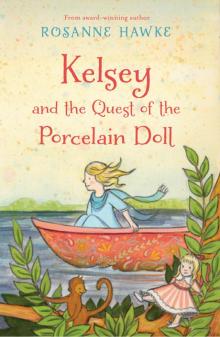 Kelsey and the Quest of the Porcelain Doll
Kelsey and the Quest of the Porcelain Doll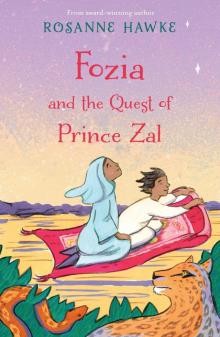 Fozia and the Quest of Prince Zal
Fozia and the Quest of Prince Zal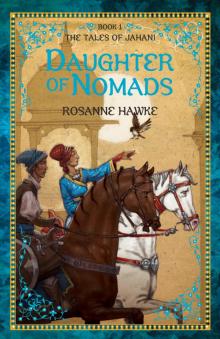 Daughter of Nomads
Daughter of Nomads The Truth About Peacock Blue
The Truth About Peacock Blue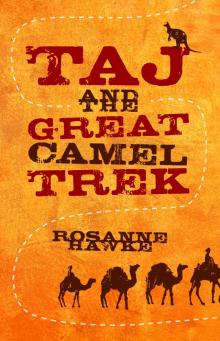 Taj and the Great Camel Trek
Taj and the Great Camel Trek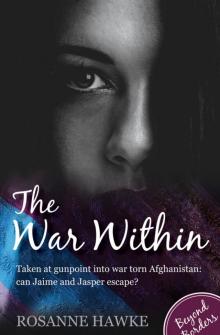 The War Within
The War Within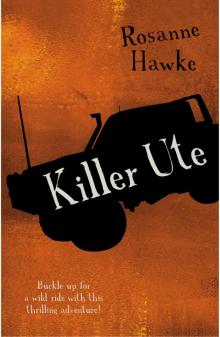 Killer Ute
Killer Ute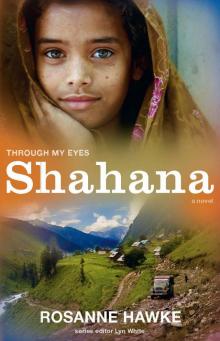 Shahana
Shahana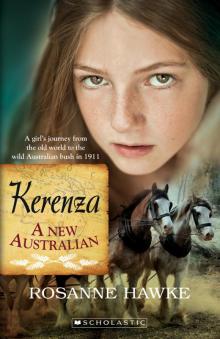 Kerenza: A New Australian
Kerenza: A New Australian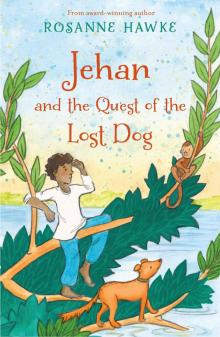 Jehan and the Quest of the Lost Dog
Jehan and the Quest of the Lost Dog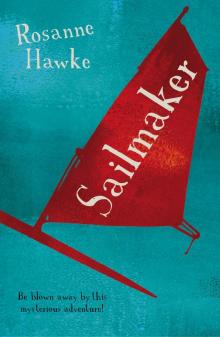 Sailmaker
Sailmaker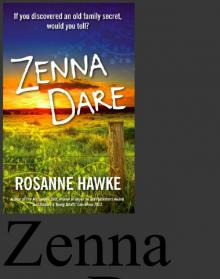 Zenna Dare
Zenna Dare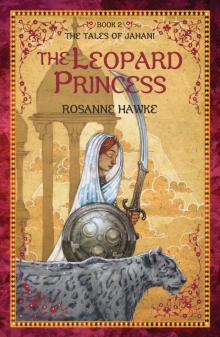 The Leopard Princess
The Leopard Princess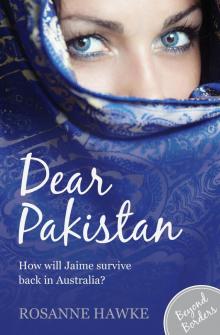 Dear Pakistan
Dear Pakistan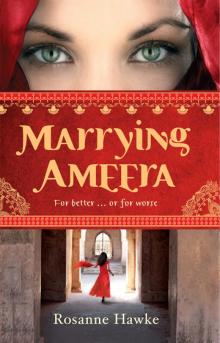 Marrying Ameera
Marrying Ameera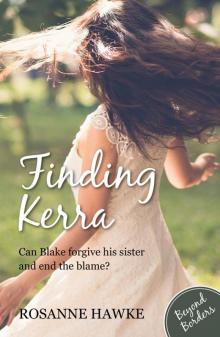 Finding Kerra
Finding Kerra Spirit of a Mountain Wolf
Spirit of a Mountain Wolf